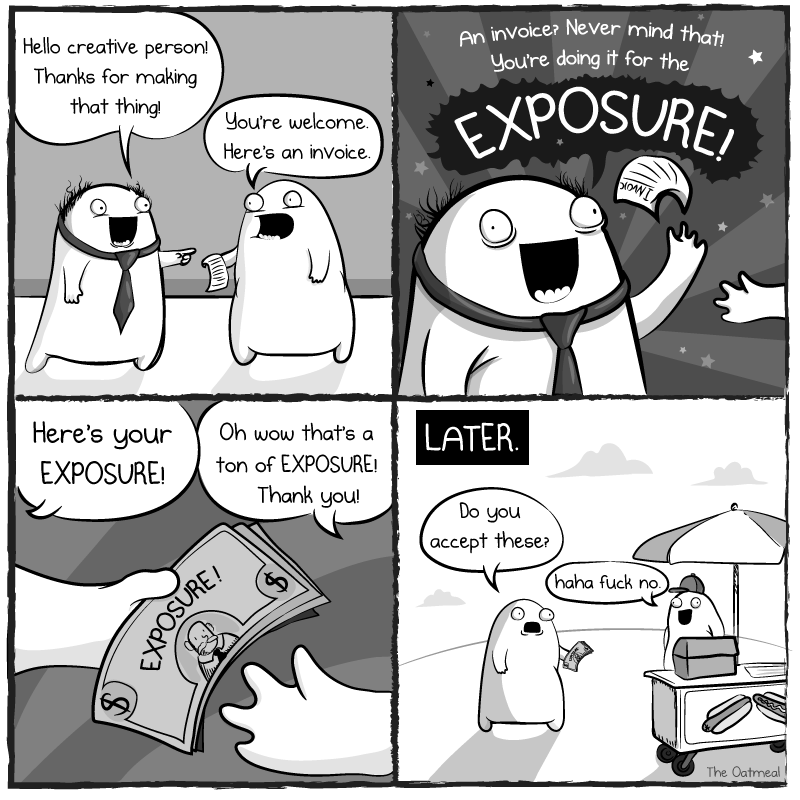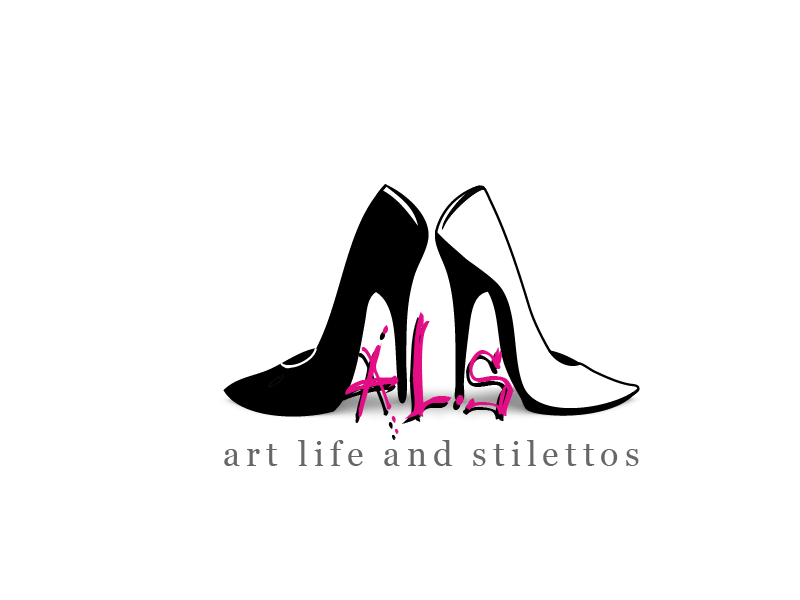This is a running joke between musicians and stage performers. Everyone has heard the elevator pitch for some “exciting” opportunity that promises incredible exposure. Another personal favourite is the pitch from a charitable organization, one that is paying caterers, bartenders, decorators, photographers, printing, rentals, and a venue, but feels that your performance should be donated. It is a difficult and, unfortunately, typical situation that artists find themselves in all the time. Try asking a mechanic or a lawyer to work for free for the sake of exposure, and see what kind of response you get.
Passion is the evil word that seems to be corrupting this industry. It is used as a weapon against the very people who are producing anything of artistic merit. Since they produce and devote their lives to art, and therefore must be passionate about it, many people find it difficult to understand why they would need to be paid, since they are doing what they love.
When you think about it, this statement says much more about the person making it than the artist. Seems we really do live in a world where people are paid to do jobs they hate, and the only way to feel better about that is to make those that have followed their passion feel undeserving of financial reward. Forbes refers to it as being in “Golden Handcuffs,” Chron refers to it as “Disengagement,” either way, it is something people struggle with.
Perhaps I am looking to deeply into the psychology of it, I mean, it could just be that the value of a performance or piece of art is simply too difficult to quantify, although Bloomberg had no trouble quantifying the impact of the arts on the economy. At the end of the day, it is a value proposition. Having food, a venue, beautiful decorations may appear to be more valuable than, say, a performance by live musicians. Which element is disposable? Artists who undercut their peers and perform for less money, or for free, instead of using market pricing to maintain an equal standard of pay are equally to blame for this situation.
This argument has very much centred on the needs, values and perspective of the contractor, or the person trying to engage the artist (for free). What has not been taken into account is the perspective of the artist. This person, or group of people, understands the requirements of becoming a professional. In the case of a musician, basic things like the purchase of instruments, lessons, coaching sessions, insurance, scores, travel expenses, hotels, and concert attire will amount to an investment in the tens of thousands, perhaps more in a country where education is not subsidized, as in Canada. In the US, for example, a singer may accumulate as much college debt as a lawyer or doctor, but without the guaranteed income to offset the investment. Does that mean that they should not be paid for their work, simply because they chose a precarious profession?
I read an interesting commentary by Jess Gow on the British theatre website, The Stage, which goes into more detail about the decay of the industry from the perspective of a theatre stage manager. Her perspective draws some interesting insight into the greater social economical impact of offering below living wage to theatre workers, as the practice is eroding the working-class arts labour force, creating a system where only those in an economically or logistically privileged living situation will be able to work in the theatre, as they are the ones that have a buffer in place that may allow them to survive being exploited.
The long-standing trend of underpaying arts workers is setting a dangerous precedent for the industry and may eventually rob the performing arts of its greatest talent, if it hasn’t already.
Here is a great comic by The Oatmeal that sums things up pretty well. The article’s featured image is also by The Oatmeal. Check out their comics here.



